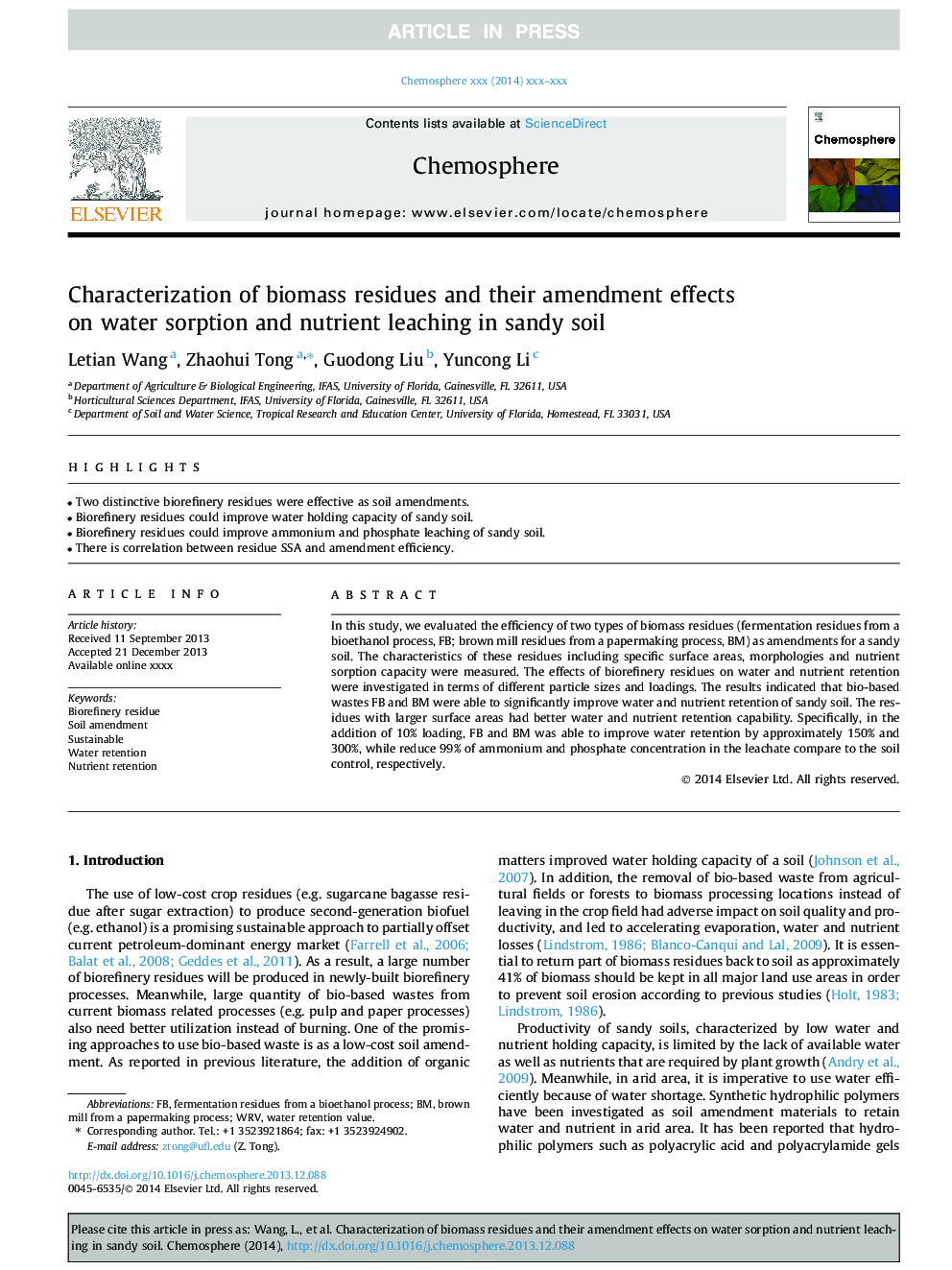| Article ID | Journal | Published Year | Pages | File Type |
|---|---|---|---|---|
| 6309180 | Chemosphere | 2014 | 6 Pages |
Abstract
In this study, we evaluated the efficiency of two types of biomass residues (fermentation residues from a bioethanol process, FB; brown mill residues from a papermaking process, BM) as amendments for a sandy soil. The characteristics of these residues including specific surface areas, morphologies and nutrient sorption capacity were measured. The effects of biorefinery residues on water and nutrient retention were investigated in terms of different particle sizes and loadings. The results indicated that bio-based wastes FB and BM were able to significantly improve water and nutrient retention of sandy soil. The residues with larger surface areas had better water and nutrient retention capability. Specifically, in the addition of 10% loading, FB and BM was able to improve water retention by approximately 150% and 300%, while reduce 99% of ammonium and phosphate concentration in the leachate compare to the soil control, respectively.
Related Topics
Life Sciences
Environmental Science
Environmental Chemistry
Authors
Letian Wang, Zhaohui Tong, Guodong Liu, Yuncong Li,
